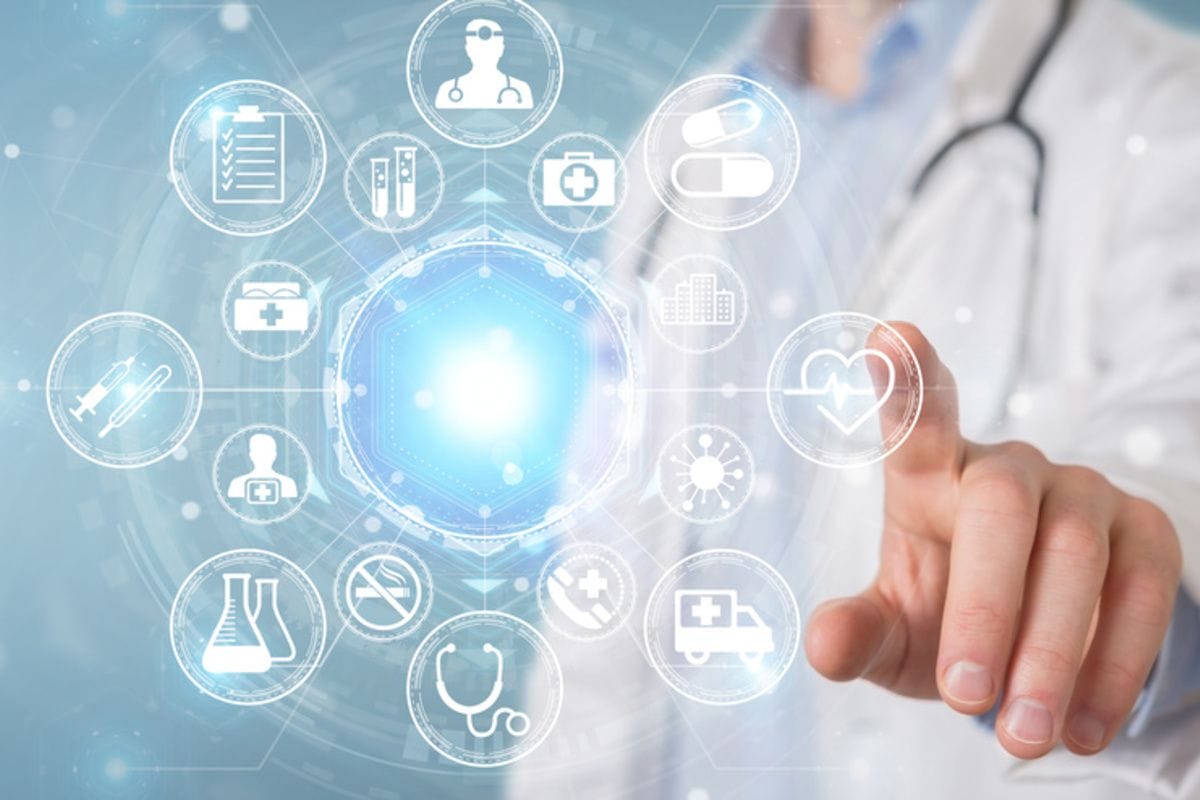In the ever-evolving healthcare landscape, technological advancements have continuously pushed the boundaries of innovation. Artificial Intelligence (AI) is a transformative force among these breakthroughs, especially in Remote Patient Monitoring (RPM). Integrating AI in healthcare, particularly in RPM, has ushered in a new era of personalized, efficient, and proactive patient care.
The Evolution of AI in Healthcare
AI's integration into healthcare has been a gradual yet revolutionary process. Initially, AI was primarily employed in diagnostic imaging, aiding radiologists in interpreting medical images more accurately and swiftly. However, its potential beyond imaging was realized quickly, leading to expansion to various medical domains. Eventually, the evolution of AI embraced Remote Patient Monitoring (RPM).
RPM, a telemedicine branch, uses technology to collect patient data outside traditional healthcare settings. It allows healthcare providers to remotely monitor patients' vital signs, symptoms, and other health indicators. This continuous monitoring enables early detection of potential health issues, timely intervention, and personalized care plans.
AI's Role in Remote Patient Monitoring
The amalgamation of AI and RPM has unlocked numerous possibilities, transforming healthcare delivery. Some specific ways AI has contributed to the growth and efficacy of RPM include:
- Data Analysis and Predictive Insights: AI algorithms can swiftly process vast amounts of patient data collected through wearables, sensors, and other devices. These algorithms analyze this data in real time, identifying patterns and deviations from normal parameters. This capability enables early identification of health concerns and prediction of potential issues before they escalate.
- Personalized Care and Treatment Plans: By analyzing a patient's historical data and continuously collected information, AI tailors treatment plans to individual needs. This customized approach ensures that patients receive interventions and medications optimized for their specific conditions, increasing the likelihood of successful outcomes.
- Enhanced Patient Engagement: RPM powered by AI fosters better patient engagement. Patients can actively participate in managing their health by accessing real-time data and insights through user-friendly interfaces. This involvement often leads to increased adherence to treatment plans and lifestyle modifications.
- Improved Healthcare Resource Allocation: AI-driven RPM optimizes resource allocation by focusing on patients requiring immediate intervention. By prioritizing cases based on risk assessment, healthcare providers can allocate their time and resources more efficiently, leading to better patient outcomes.
How Does AI Benefit Healthcare and RPM Use?
Artificial Intelligence (AI) offers many benefits to healthcare, especially in the realm of Remote Patient Monitoring (RPM). Key advantages include:
- Enhanced Diagnostic Accuracy. AI algorithms can analyze complex medical data with remarkable speed and accuracy, including images, lab results, and patient histories. This capability aids in a more precise and timely diagnosis, reducing human error and improving patient outcomes.
- Proactive and Predictive Care. By continuously monitoring patient data, AI-powered RPM can predict potential health issues before they escalate. Through pattern recognition and analysis of trends, AI identifies deviations from normal parameters, enabling early intervention and personalized care plans.
- Personalized Treatment. AI tailors treatment plans based on individual patient data. By considering a patient's unique medical history, genetic makeup, lifestyle, and real-time health metrics, AI recommends personalized interventions, medications, and lifestyle modifications, maximizing treatment effectiveness.
- Improved Operational Efficiency. RPM, supported by AI, optimizes healthcare resources by prioritizing patient cases based on risk assessment. Healthcare providers can focus on patients requiring immediate intervention, optimizing their time and resources for better overall patient care.
- Remote Monitoring and Accessibility. AI-powered RPM facilitates remote patient monitoring, allowing healthcare professionals to track patients' health status outside traditional clinical settings. This accessibility promotes timely interventions and reduces the need for frequent in-person visits, which is especially beneficial for patients in remote areas or with limited mobility.
- Engagement and Empowerment. Access to real-time data and insights provided by AI-driven RPM allows individuals to be more engaged in managing their health. This involvement often leads to increased adherence to treatment plans, a better understanding of their conditions, and a sense of empowerment in managing their health.
- Research and Development. The wealth of data collected and analyzed through AI in RPM contributes to medical research and the development of new treatments. AI enables healthcare researchers to access extensive datasets, accelerating the discovery of trends, patterns, and potential breakthroughs in healthcare.
- Cost-Efficiency. AI-driven RPM can reduce healthcare costs by preventing avoidable hospitalizations, minimizing complications through early detection, and optimizing resource allocation. Additionally, preventing chronic conditions from worsening can reduce long-term healthcare expenses.
Challenges and Future Prospects
Despite its significant potential, integrating AI into RPM poses specific challenges. Issues related to data privacy, interoperability of systems, and regulatory compliance need to be addressed to ensure seamless and secure implementation.
Looking ahead, the future of AI in RPM holds tremendous promise. Advancements in machine learning algorithms and the proliferation of IoT devices will further refine AI's capabilities in continuous patient monitoring. This evolution will likely result in more accurate predictive models, enabling healthcare providers to intervene even more proactively.
In Summary
The convergence of AI and RPM marks a fundamental change in healthcare delivery. Healthcare providers can offer personalized, proactive, and timely interventions by harnessing AI's power to analyze vast amounts of patient data. The growth of AI in RPM is not just about enhancing efficiency; it's about redefining patient care by putting the individual at the center of a data-driven, proactive healthcare system. Smart Meter can provide the robust RPM data needed to power AI driven decisions and help improve outcomes. As technology continues to evolve, the benefits of AI in healthcare and RPM are poised further to enhance the quality and accessibility of healthcare services worldwide.




